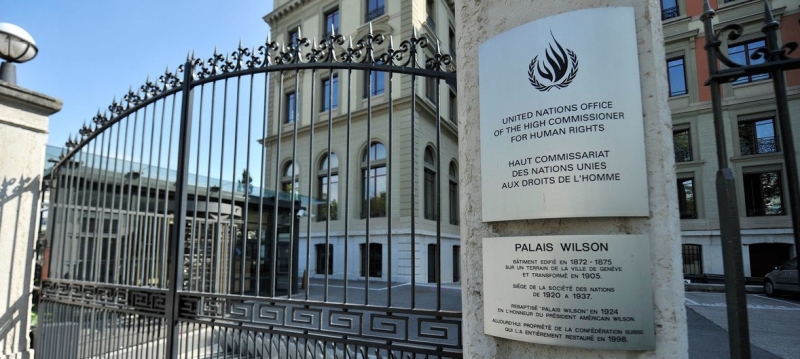
Office of the United Nations High Commissioner for Human Rights, Geneva UN experts: Lithuania can do more to prevent enforced disappearances Human Rights
Lithuania must continue to strengthen its legislative and institutional measures to more effectively prevent and combat enforced disappearances, experts from the UN Working Group on Enforced or Involuntary Disappearances have said.
Following an official visit to the country, the group members pointed out the need to create legal safeguards, in particular by codifying enforced disappearance as a separate crime and incorporating the broad concept of universal criminal jurisdiction into Lithuanian legislation.
Rights of Migrants
The UN independent experts commended the government for its commitment to international human rights law and the fight against enforced disappearances, including the implementation of recommendations of the UN Committee on Enforced Disappearances and other international human rights mechanisms.
At the same time, the Working Group expressed concern about reports of ongoing expulsions of migrants to neighbouring Belarus. Noting the problems associated with the increase in the number of arriving migrants in recent years, the experts recalled that international law prohibits the return of any person to a country where he or she may be at risk of enforced disappearance.
The delegation also drew attention to the fact that in the context of deprivation of liberty, guarantees for the protection of migrants from enforced disappearance are in some cases not sufficiently ensured. In this regard, the experts stressed the importance of immediately notifying the relatives of all migrants deprived of liberty, as well as ensuring their access to a lawyer or other person of their choice from the very beginning of detention.
Secret CIA Renditions
UN human rights defenders also mentioned Lithuania’s involvement in so-called “extraordinary renditions” [detentions – ed. [ed.] The US Central Intelligence Agency and the corresponding secret detention program.
“Despite the unanimous recognition by many international mechanisms, including the Working Group and the European Court of Human Rights, of Lithuania’s involvement in extraordinary renditions that resulted in enforced disappearances, the Lithuanian authorities have not issued an official admission or public apology,” the experts said. People have the right to know the truth, they stressed. In addition, the situation raises concerns in terms of the potential repetition of such actions, the human rights activists added.
The Working Group will present its official report to the UN Human Rights Council in September 2025.
The Working Groups are part of the so-called Special Procedures of the Human Rights Council. Special Procedures experts are not UN staff and do not receive a salary for their work. They are independent from any government or organization and serve in their individual capacity.
